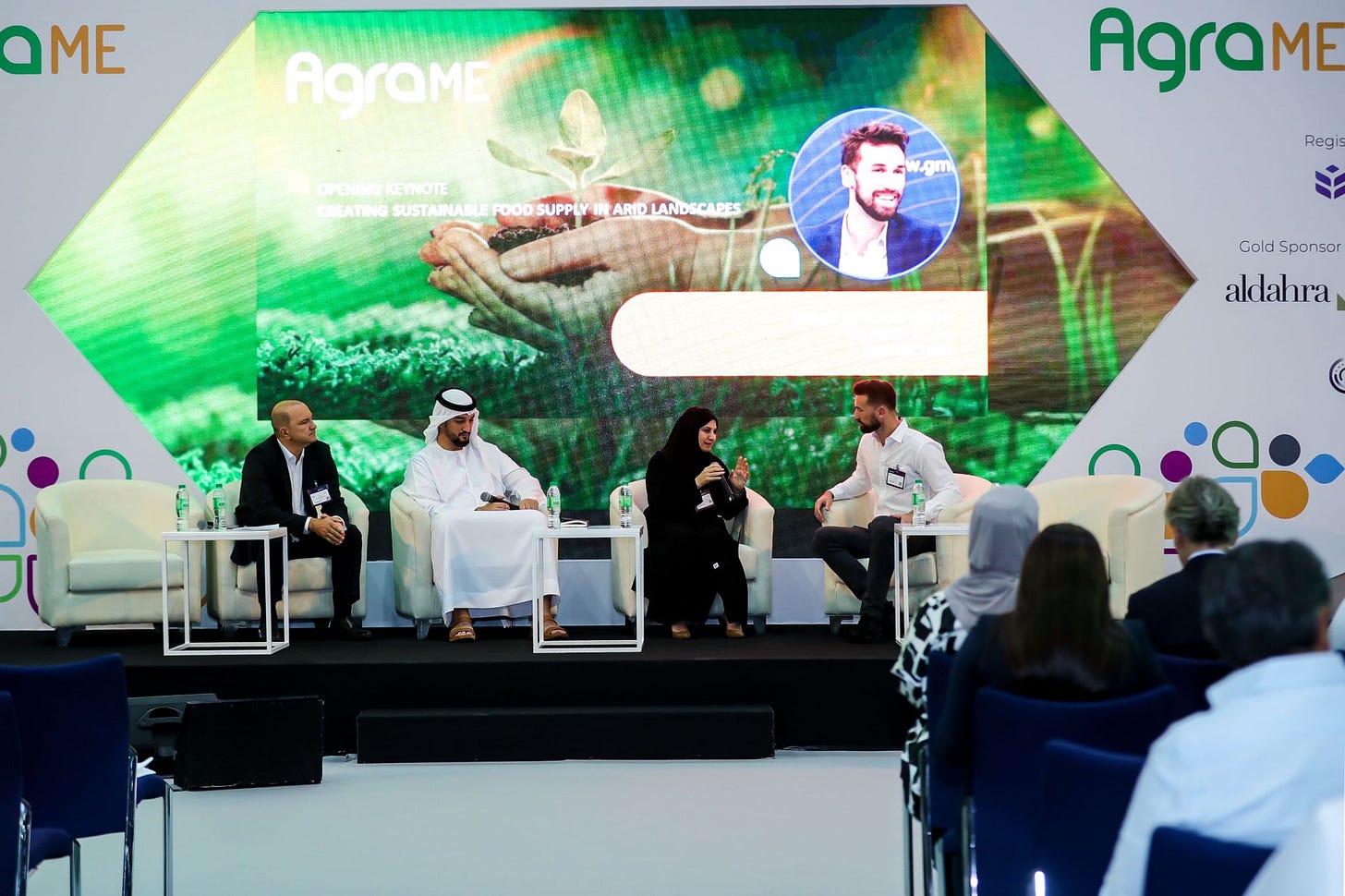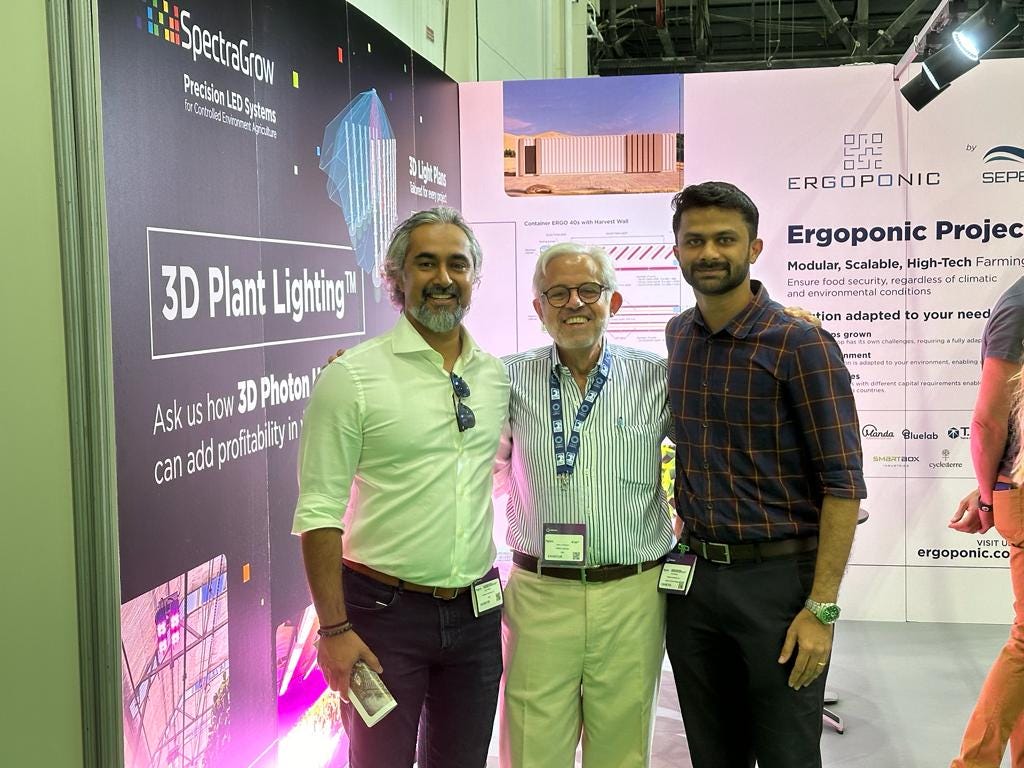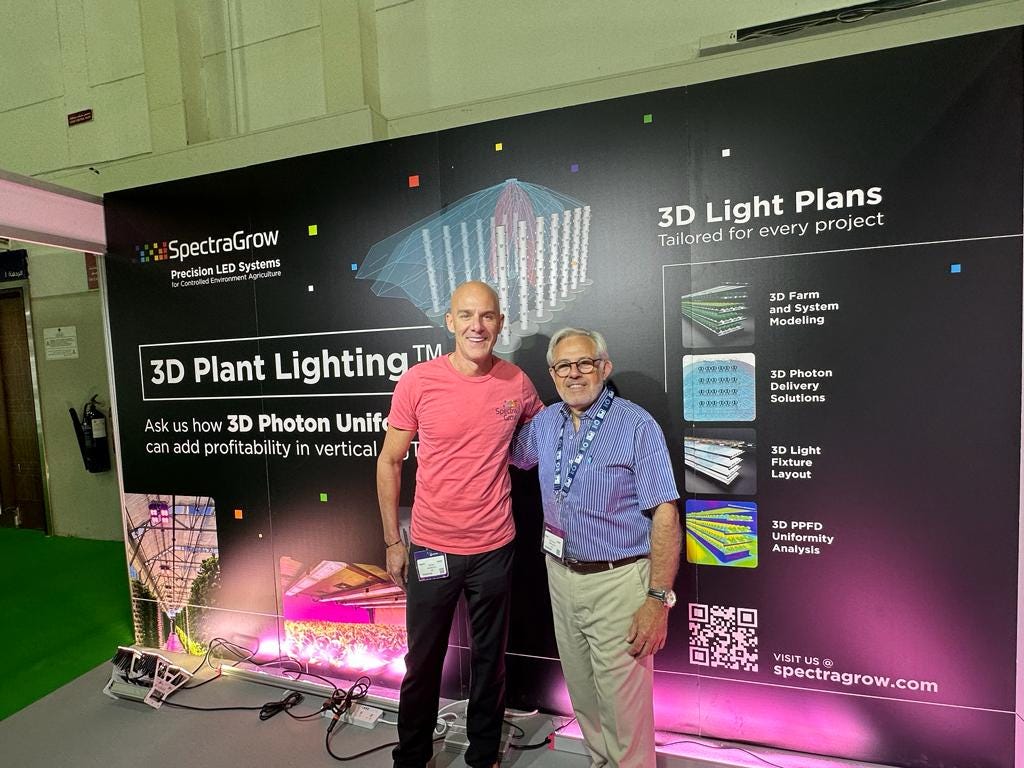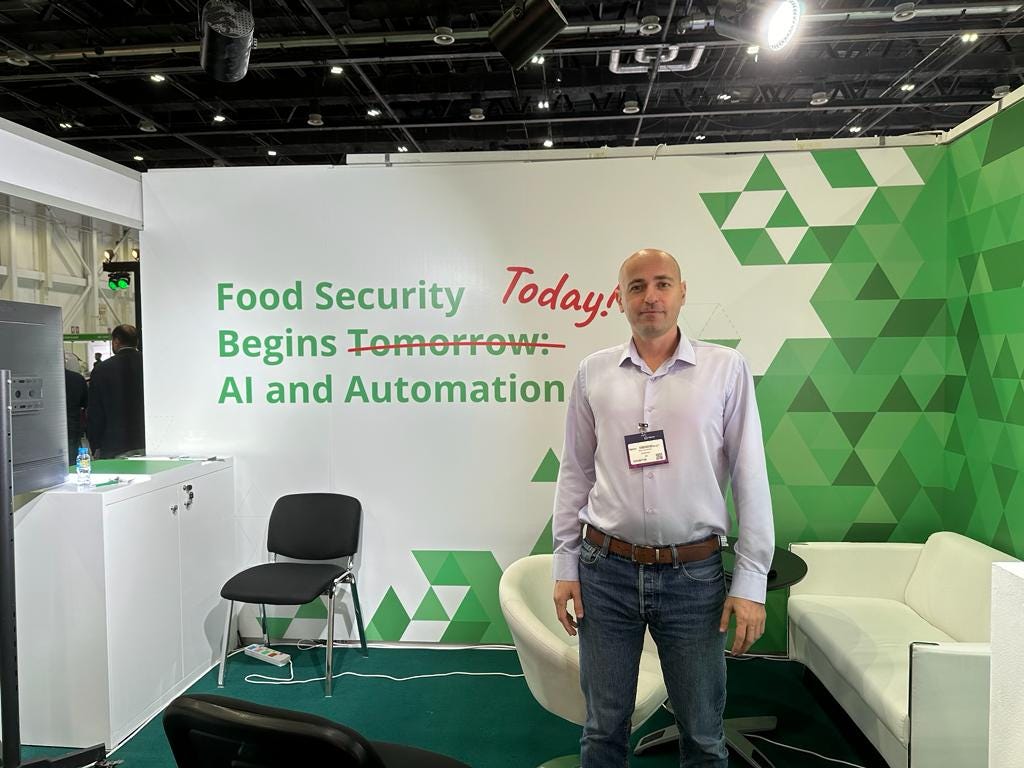My Recap On AgraME - A Glimpse into the Future of AgTech in Dubai
Last week, I attended AgraME and I was surprised by the amount of people who attended the event.
Key Takeaways
Agra Middle East saw impressive attendance, indicating strong interest and investment in the agriculture technology sector.
The UAE government actively promotes food security and diversity, aligning with its 2051 strategy.
Labor gaps and technological independence must be addressed in the region.
Industry leaders see the event as promising but hope for more concrete projects in the future.
The quality of attendees and leads suggests a fertile ground for AgTech growth in the region.

The Agra Middle East event in Dubai was more than just a gathering of industry professionals; it was a microcosm of the challenges and opportunities facing the agriculture technology sector in the region. With keynotes from government officials and industry leaders, the event offered a comprehensive look at the state of AgTech in the Middle East. This editorial will delve into the key takeaways from the event, providing insights into the burgeoning industry's future.
Governmental Focus on Food Security and Diversity
One of the most striking aspects of the event was the UAE government's focus on food security and diversity. H.E. Eng. Mohammed Mousa Alameeri, Assistant Undersecretary for the Food Diversity Sector at the Ministry of Climate Change and Environment of the UAE, emphasized the government's focus. "AgraME had a great significance as an event leading to COP28 held this year in Dubai," he noted. The government recognizes the impact of agriculture on climate change and is adopting new technologies to address these challenges. "This is why they have the world's largest vertical farm in operation," Alameeri added. This aligns with the UAE's 2051 strategy, which aims to focus on domestic production, enhance income for farmers, and increase food security.
Labor Gaps and Technological Independence

Henry Gordon Smith, CEO of Agritecture, pointed out that challenges remain to be addressed while the region's landscape evolves. "Emphasis should be on addressing the challenges with labor gaps, which hampers the efficiency of some of the farms," he said. Smith also stressed the importance of technological independence, stating, "The country is relying on outside technology to become food secure, but it is also important to become independent regarding the technology used." This is a critical point, as relying solely on external technology could make the country vulnerable to supply chain disruptions and geopolitical tensions.
Industry Leaders Weigh In
Whitt Allen, CEO of SpectraGrow, found the event promising but was still nascent. "A lot of interest in CEA, still a new concept for this region," he observed. "Not much concrete for now, but it is promising. Next year, I hope the conversation will be more oriented towards concrete projects." Allen's comments reflect a broader sentiment that while interest is high, the next step is to translate that interest into actionable projects.
Dima Chernobilsky, CEO of GrowDirector, was optimistic about the quality of attendees and leads. "In this region, people with concrete plans have money, plan, and project ready and want the solution yesterday," he said. Chernobilsky also mentioned the growing interest in greenhouses and the quality of leads, indicating a fertile ground for AgTech growth in the region. "We had hopes coming up to this event as the region is growing and thinking of establishing offices and local partnerships," he added.

The Road Ahead
The Agra Middle East event serves as a barometer for the state of AgTech in the region. The governmental solid focus on food security and adopting new technologies are positive indicators. However, challenges like labor gaps and technological independence loom large. Industry leaders are optimistic but stress the need for more concrete projects to catalyze growth.
Conclusion
The Agra Middle East event was a snapshot of the AgTech industry in Dubai and the broader Middle East region. The government's focus on food security and diversity and its willingness to adopt new technologies set a positive tone for the industry. However, challenges like labor gaps and technological independence must be addressed for sustainable growth. Industry leaders are optimistic but call for more concrete projects to move the sector forward. As the region continues to evolve, events like Agra Middle East will serve as essential milestones, marking the progress and potential of AgTech in the Middle East. With the next event already highly anticipated, the hope is that it will bring more concrete projects and solutions, pushing the industry closer to its immense potential.






